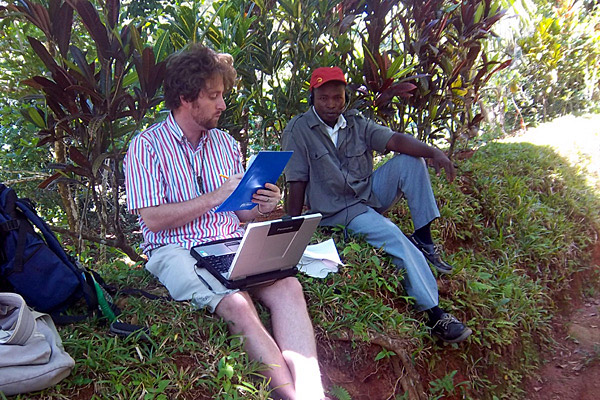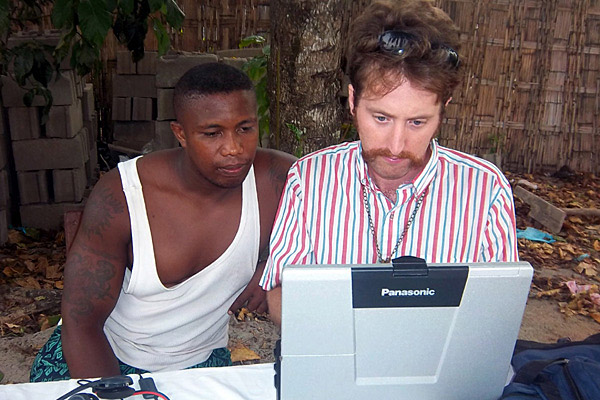


Analyzing language
Doctoral student travels to Madagascar to document dialect
9:56 a.m., April 3, 2012--Tim O'Neill first traveled to Madagascar as a potential environmental studies undergraduate whose interest in the island nation off the southeast coast of Africa was its reputation as a hot spot for biodiversity and environmental problems. But once he visited, his curiosity was piqued by the languages and dialects he heard.
Now, O'Neill is nearing the completion of his doctoral degree in linguistics at the University of Delaware, with a final research trip to Madagascar planned for about three months this summer, following a five-month stay during fall semester.
Global Stories
Fulbright awards
Peace Corps plans
He has received support for his research travels through a competitive global grant awarded by UD's Office of Graduate and Professional Education, in collaboration with the Institute for Global Studies and the University's seven colleges, and through a recently awarded National Science Foundation Dissertation Improvement Grant.
"I came to Delaware in 2007 specifically to study Malagasy [the language of Madagascar], which is more closely related to Indonesian languages than to Bantu languages" spoken in parts of continental Africa, O'Neill said. Speakers of Indonesian languages were seafarers earlier than were Bantu speakers and so are assumed to have reached Madagascar first and to have had more influence on the island's languages.
O'Neill's research focuses on documenting and analyzing a dialect of standard Malagasy, called Betsimisaraka Malagasy, which is spoken along the northeast coast of the country.
Betsimisaraka is practically undescribed, said O'Neill, whose research indicates that the dialect is not as related to standard Malagasy as has been believed. Although Betsimisaraka is not considered endangered, children in the region are increasingly being taught the standard dialect, and the number of Betsimisaraka speakers is declining.
O'Neill began his previous trip to Madagascar by working intensively for a month with a resident of Madagascar, who normally was an English teacher, who taught him his native language. He then spent four months making field trips to the town of Vavatenina to meet with residents who spoke only Betsimisaraka and preparing to create a grammar of the dialect.
O'Neill, whose adviser is Jeffrey Heinz, assistant professor of linguistics and cognitive science, expects to complete his dissertation during fall semester.
Article by Ann Manser
Photos courtesy of Tim O'Neill









